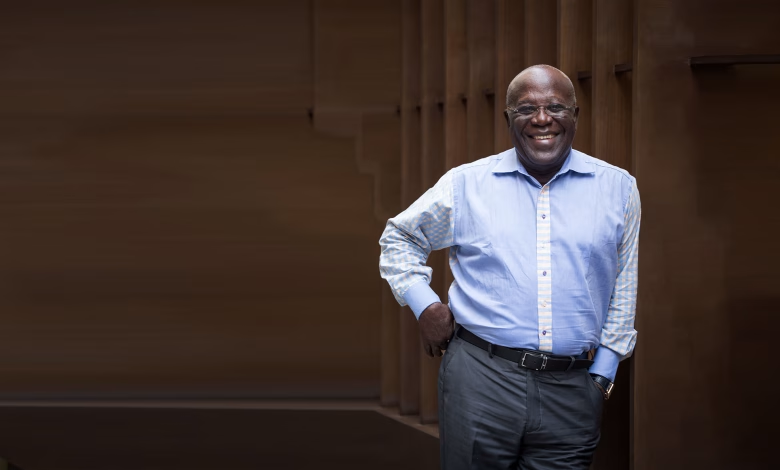Sam Jonah refutes political favoritism in E&P gold project

- Sam Jonah defends E&P’s acquisition of the Black Volta Gold Project as merit-based
- Jonah praises Ibrahim Mahama’s vision and commitment to hard rock mining
- Described as Ghana’s first large-scale, wholly Ghanaian-owned gold mine
Renowned Ghanaian business leader Sir Sam Jonah has strongly rejected claims that the acquisition of the Black Volta Gold Project by Engineers & Planners (E&P) was influenced by political connections.
Speaking at a ceremony to commemorate a $100 million financing agreement between E&P and the ECOWAS Bank for Investment and Development (EBID), Sir Jonah described the deal as a legitimate, merit-based, and commercially sound transaction—not a product of cronyism or political favoritism.
“Let us be clear: this is not a favour. This is not political patronage. This is not crony capitalism,” he stated emphatically.
Sir Jonah hailed the development as a milestone in Ghana’s mining sector, marking the emergence of the country’s first large-scale, wholly Ghanaian-owned gold mine. He called it a historic moment and a turning point in the nation’s long-standing relationship with its mineral wealth.
“We are not just here to witness the signing of a facility agreement. We are here to celebrate a breakthrough—one driven not by foreign interests, but by the vision and execution of Ghanaian enterprise,” he said.
The agreement, signed quietly in October 2023, was, according to Sir Jonah, free of political interference and based solely on business merit, supported by a robust balance sheet and sound fundamentals.
A long-time advocate for local ownership in Ghana’s extractive industry, Sir Jonah commended Ibrahim Mahama, founder of E&P, for his foresight and persistence in pursuing the dream of Ghanaian participation in hard rock mining.
“You are living out a dream I’ve held for decades—a dream many once thought too ambitious,” he said.
Reflecting on their first meeting in 1998, Jonah recalled advising Ibrahim Mahama to pursue hard rock mining over alluvial gold mining due to its long-term viability. He praised Mahama for listening, building a solid company, and earning the respect of industry peers.
Sir Jonah used the platform not only to celebrate the deal but also to call for policy reforms that support local participation in resource extraction, citing the example of South Africa’s Black Economic Empowerment (BEE) framework.
“Ownership matters. Equity matters. National pride demands that we do more to ensure that our people benefit directly from our mineral wealth,” he urged.
He emphasized that Ghanaian entrepreneurs don’t lack talent but often face barriers such as limited access to capital, opportunity, and policy support.
Concluding his remarks, Jonah encouraged policymakers and stakeholders to treat the Black Volta Gold Project as more than just a single success, but rather a blueprint for Ghana’s resource sovereignty and long-term economic transformation.






